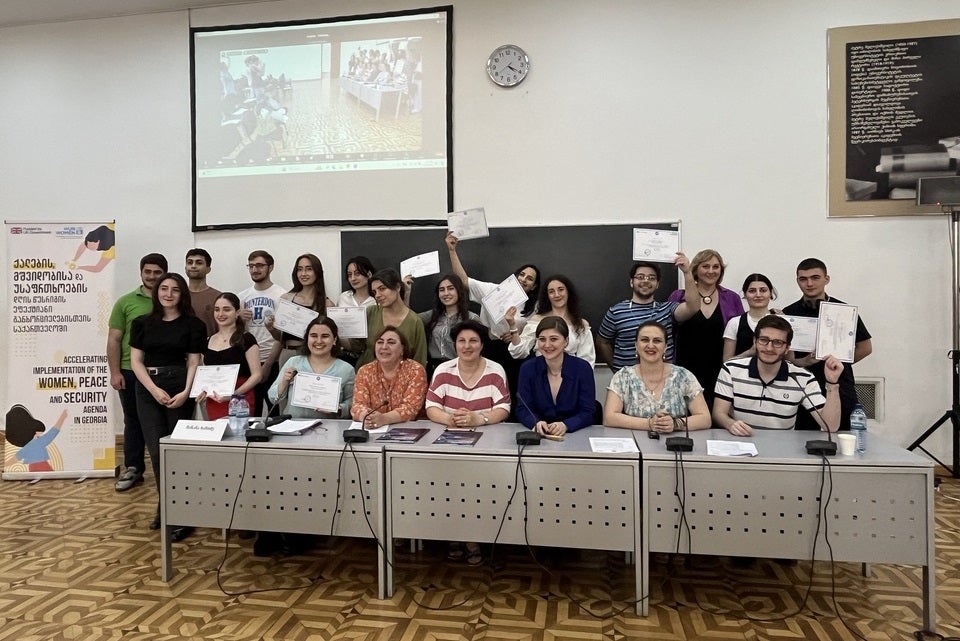Students discuss gender dimensions of cybersecurity
Date:

“I feel embarrassed that boys bully girls on the Internet because of their gender and [that] gender stereotypes do not allow [girls] to show their potential and skill.” That is how a third-year student, Mate Gumbaridze, finished his address at the first student conference dedicated to the gender dimensions of cybersecurity and gender-based harassment.
Mate is studying computer science at Ivane Javakhishvili Tbilisi State University and is fond of video games. He says that harassment of girls in cyberspace is very common, which was the reason why he decided to choose this topic for this conference.
Mate was one of the 21 students who made presentations at the research conference “Gender Dimensions of Cybersecurity”, organized by the initiative of the UN Women Georgia Country Office in cooperation with Ivane Javakhishvili Tbilisi State University and covering 13 research abstracts in total.
The students at the conference discussed such issues as the risks that women encounter online, the reasons for the gender gap in cybersecurity, cyberharassment, stalking and gender-based cybercrimes, and why there are fewer women in the cybersecurity workforce. They also discussed the barriers that women face in regard to employment opportunities, career advancement and representation in leadership roles. Representatives of academic groups, civil society and international organizations attended the event.
Women experience online harassment and stalking more often than men and thus face different challenges. In addition to this, women experience a low level of inclusion in cybersecurity initiatives, which hampers finding solutions to the issues by considering women’s interests and increasing their participation in this male-dominated field. It is noteworthy that women are not given an opportunity to contribute to this field with their different skills and knowledge, which leads to hampered development of the whole field. This is the reason why cybersecurity has become a key direction in the Women, Peace and Security agenda in recent years.
“I prepared my report for the conference on cybersecurity and cybercrime incidents, during which I discovered many interesting tips throughout this process,” mentioned Nino Naskidashvili, a second-year student of computer science. “I wanted not only to talk about this topic but also to offer some recommendations to students. Oftentimes, targets of cyberviolence are girls, and I think that it is very important that we be engaged actively in the events dedicated to this topic and speak out about the issues that bother us.”
The student research conference facilitated the exchange of knowledge and experience among its participants and the analysis of various challenges faced by women in cyberspace throughout the country. It put forward the contributing factors of gender disparities in cybersecurity and created a platform to discuss innovative approaches necessary to overcome them and develop an effective strategy.
The conference was organized within the project “Accelerating Implementation of the Women, Peace and Security Agenda in Georgia”, generously funded by the UK Government.